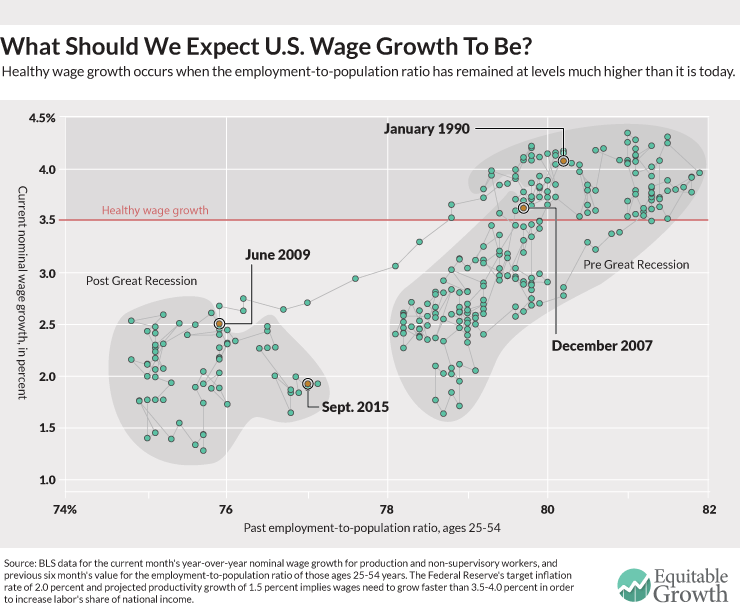Weekend reading
This is a weekly post we publish on Fridays with links to articles that touch on economic inequality and growth. The first section is a round-up of what Equitable Growth has published this week and the second is work we’re highlighting from elsewhere. We won’t be the first to share these articles, but we hope by taking a look back at the whole week, we can put them in context.
Equitable Growth round-up
The evidence shows that the proliferating number of tax expenditures in the United States intended to replace some function of the welfare state are inefficient. They’re also inequitable, as most benefits go to high-income households. And they’re opaque to both policymakers and the public.
The Phillips curve has been at the center of recent discussions about the health of the U.S. economy and the future actions of the Federal Reserve. While the traditional Phillips curve that looks at inflation might be dead, we might want to look at what happens to wages.
The rise of companies like Uber, Airbnb, and Dropbox has sparked a fascination with these so-called “unicorn” companies. These privately held companies valued at more than $1 billion might seem like the future of the firm, but they are very much horses of a different color.
The unencumbered movement of capital among countries is supposed to be one of the great tenets of globalization. But economists have started to wonder if the case for free capital isn’t as strong as they once thought.
Links from around the web
George Akerlof and Robert Shiller, both winners of the Nobel Prize in economics, have a new book out about the ways in which markets can deceive consumers. Jeff Guo interviews the pair, and the conversation touches on Shiller’s cat, the Kardashians, and the morality of gambling. [wonkblog]
A recent column by economist Mike Spence and former Federal Reserve Governor Kevin Warsh on the relationship between monetary policy and business investment didn’t make a lot of sense to former U.S. Treasury Secretary Larry Summers. “I would put the Spence-Warsh doctrine that easy money reduces investment in a class of propositions backed by neither logic nor evidence.” [wonkblog]
Speaking of business investment, J.W. Mason agrees that monetary policy probably didn’t hold back investment growth. But is investment growth really that strong? Mason finds evidence that, in fact, it seems to be below historical levels. [the slack wire]
If you’ve read any tax reform plans, there’s a good chance they call for a reduction in tax brackets. But the idea that a reduction in brackets will make the system simpler in the face of all our deductions and credits seems misguided. In fact, there’s a good case for adding more brackets—and Jeff Spross makes it. [the week]
Thinking about a world without scarcity might not seem sensible in the wake of a large financial crisis. But the rise of information technology companies, increasing business concentration, and declining investment might make us rethink that hesitancy. [ft alphaville]
Friday figure

Figure from “A kink in the Phillips curve” by Nick Bunker.
